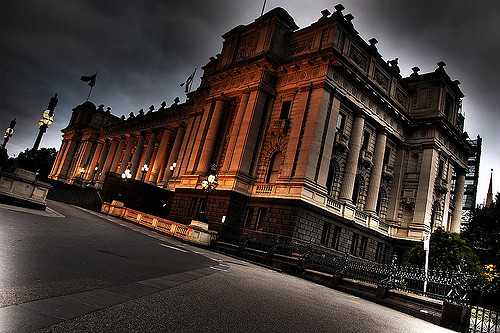Emma Dawson is the executive director of public policy think tank Per Capita; she shared her views on the euthanasia legislation before the Victorian legislature with The Age.
I've hesitated before entering the debate around the assisted dying legislation now before the Victorian Parliament, because people of good intentions are driving the legislative process. But the willingness of some euthanasia advocates to paint all opposition as religious zealotry must not go unchallenged.
I'm not religious. And, for the record, I support both marriage equality and abortion rights unequivocally - mine is not a reactionary, conservative position.
I also worked for three years as a care attendant in an aged care home, helping to care for people in the final days of their lives, so I have some understanding of the suffering people can experience as they die.
I oppose the introduction of assisted dying by the state because it inherently prioritises the rights of the individual over our collective responsibility to protect the most vulnerable in our society. These are views shared by many people of good conscience who haven't darkened the doorstep of a church in years, if ever.
Emma goes on to consider the campaigning tactics of euthanasia advocates such as 'Go Gentle', whose video materials are by design '"almost unwatchable" in its re-enactment of a man's death.' She says 'this horror show... [exploits] people's deepest fears rather than making a rational case for legislative change.'
For her,
The demographic make-up of the lobby group is significant. The push for assisted dying worldwide is driven by wealthy Western baby boomers who have enjoyed over their lifetimes a relative freedom from serious illness and a level of personal autonomy unprecedented in human history...
I get it: exercising "choice" over the time and manner of our deaths is seen as the only way to bring comfort as people face the prospect of dying in pain and fear.
But dying is often painful, and always fearful.
I can't accept that an individual's right to avoid that final human tribulation should be given priority in law over the inherent risk involved in state-sanctioned euthanasia to the lives of our most vulnerable citizens.
She concludes:
In a society that is deeply uncomfortable with incapacity and disability, and sees ageing only as a terrible decline, legalising euthanasia would be a sinister victory for the forces of Western individualism, one which will tear at the fabric of our collective humanity and our responsibility to the greater good.
Because, ultimately, the assisted dying legislation creates different categories of human life: some worth living, some not. It's a law not about how people should die, but about whether people should live - and the state should have no say in that.
Read 'Assisted dying legislation creates different categories of human life' by Emma Dawson in full.
Image: Wikimedia






crop.jpg)



